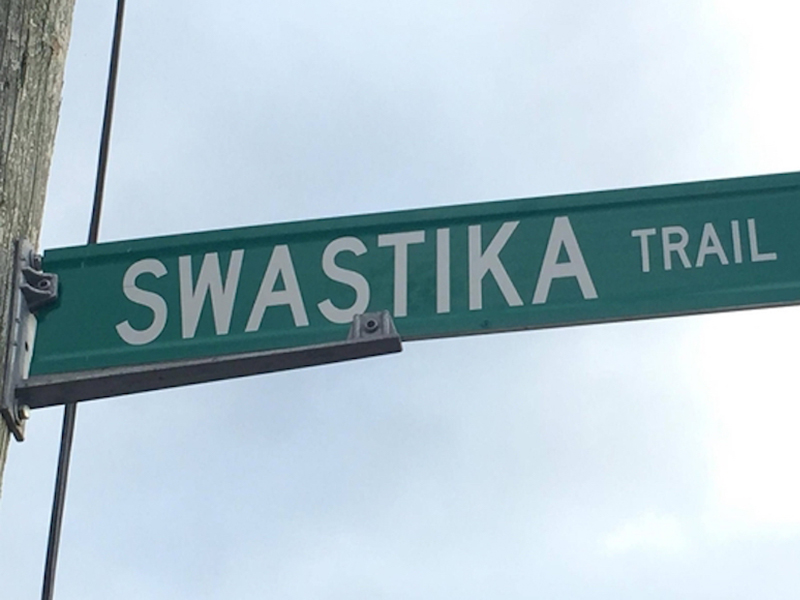In a recent op-ed for The CJN, Michael Taube takes issue with efforts by B’nai Brith Canada and other Jewish groups to change the street name Swastika Trail in the town of Puslinch, Ont. While Mr. Taube is certainly entitled to his own opinion on Swastika Trail, he is not entitled to his own set of facts.
Firstly, and contrary to Mr. Taube’s assertion, B’nai Brith did not choose to “meddle” in local Puslinch affairs. In fact, we only became involved after embarrassed residents of Swastika Trail reached out to us for help. These brave residents pushed for reform on the ground and, as a human rights organization, we were happy to assist by drawing attention to their efforts within the Canadian Jewish community and the public at large.
In December, Puslinch Township Council voted against changing the name of Swastika Trail. At that meeting, the stories we heard from residents were disheartening. One couple described how they couldn’t order any products from the online retailer Amazon because the company refuses to deliver products to the ignominious street. Others expressed deep shame at being forced to see “swastika” written all over their government documents, job applications, and other official documents. Another resident presented a slideshow of recent anti-Semitic incidents involving the swastika, from the hate mail calling for genocide that targeted synagogues across Canada to the vile, anti-Semitic graffiti that has defaced university campuses and high schools.
READ: ONTARIO TOWN VOTES TO KEEP SWASTIKA TRAIL STREET NAME
In an effort to highlight the hypocrisy behind keeping the name, one resident asked Service Ontario for a custom licence plate that read “Swastika,” and was refused on the basis that it would foster “human rights discrimination.” If someone can’t choose to be officially associated with that word, why are residents of Swastika Trail being forced to do so against their will?
Contrary to Mr. Taube’s claims, B’nai Brith has always been open about the fact that Swastika Trail predates Hitler’s rise to power and that the swastika has other, more benign connotations, especially in east and south Asia. We just don’t think that’s a good enough reason for keeping the current name. After all, the word “Holocaust” had no particular association with the mass slaughter of Jews until at least 1945, and is still sometimes used in other contexts. Would Mr. Taube be OK with a Canadian street named Holocaust Trail?
Or, what about Kike Trail? While the origins of that anti-Semitic slur are clouded in mystery, most scholars agree that it began as a relatively harmless term used by assimilated American Jews to describe their more recently arrived cousins. Do the older, non-anti-Semitic connotations of that term render it appropriate for modern-day use? We don’t think so.
In 2015, the government of Quebec unilaterally changed the names of 11 sites across the province which contained the French equivalent of the n-word, even though the term was not originally considered to be a slur. Local residents weren’t even consulted. The change was inspired by a petition launched by a PhD student at McGill University. B’nai Brith is no longer prepared to accept unequal treatment. We believe in other communities’ rights to have derogatory names removed from official government maps, just as we believe in our own. Today, the swastika is overwhelmingly used as a symbol of hatred and evil. And that’s why we will not rest until the name of Swastika Trail is changed.
The truth is that many right-minded, non-Jewish residents of Swastika Trail reached out to our community, rightly expecting our help in removing this reminder of Nazism from their town. B’nai Brith was, and always will be, proud to lend a hand in the struggle against racism and bigotry.
Aidan Fishman is Interim National Director of the League for Human Rights at B’nai Brith.






